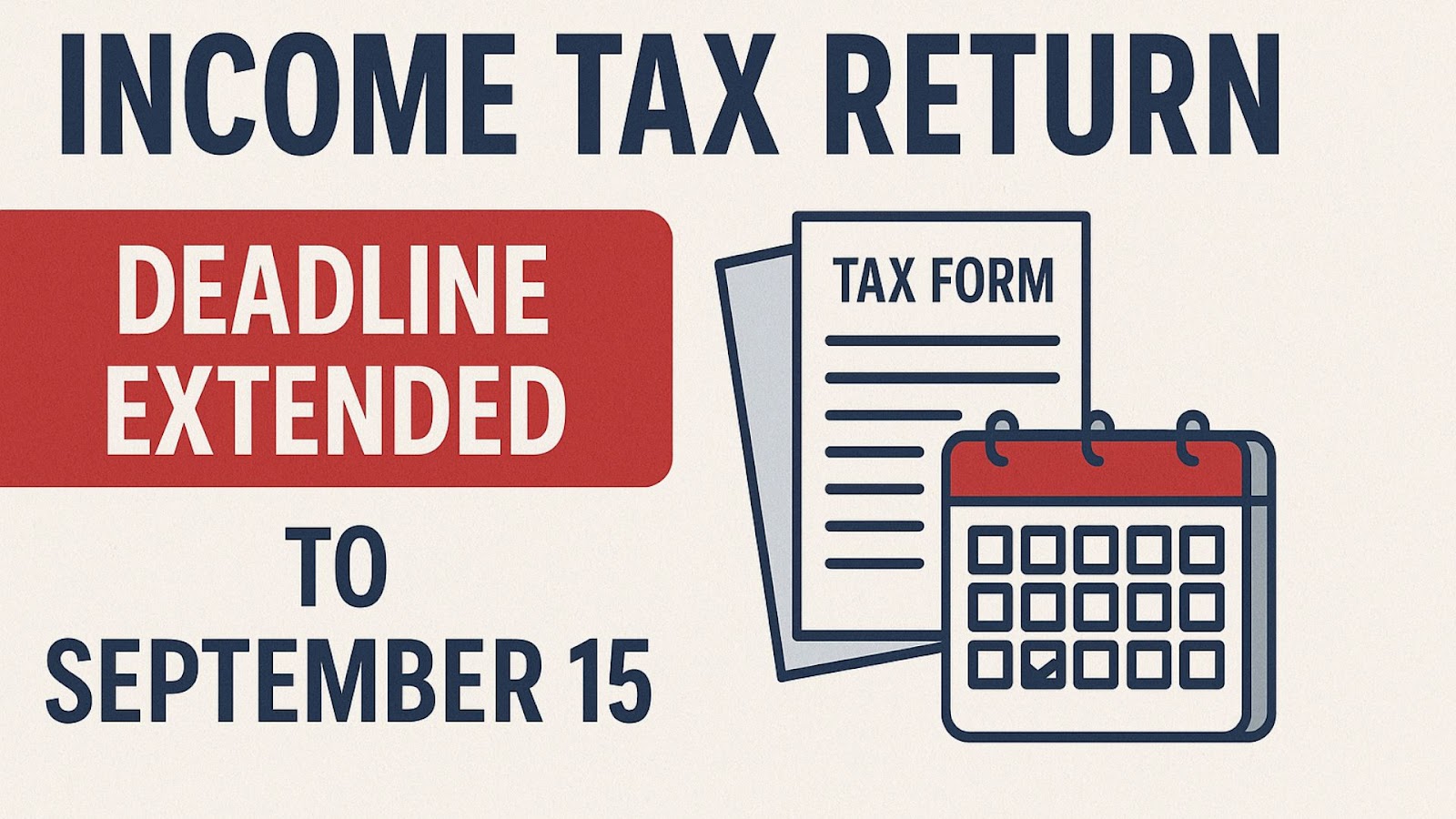The wait for income tax refunds has stretched longer than usual for many taxpayers in India. According to the Income Tax Department, nearly 1.23 crore income tax returns remain unprocessed out of 3.98 crore filed for the current financial year. While around 2.74 crore returns have been processed as of August 31, the pace is slower than expected, raising concerns for taxpayers eagerly anticipating refunds.

The deadline for filing income tax returns for individuals whose accounts do not require audit is September 15, 2025. Initially, the due date was July 31, but the government extended it to provide taxpayers with more time. Despite this extension, the rate of filing has not reached anticipated levels. As the deadline approaches, experts are watching closely to see how filings progress over the final two weeks.
One reason for delayed refunds is the adjustment of new refunds against previous year tax arrears. If a taxpayer has unpaid taxes or pending appeals from prior years, the department may offset any new refund against these arrears. In such cases, the refund may arrive late or be reduced. This adjustment mechanism ensures that outstanding dues are cleared before new refunds are issued.
Another factor is the department’s scrutiny of unusually large or suspicious refunds. When refunds appear abnormally high, the tax authorities often initiate additional verification and may request supporting documents. While this helps prevent fraudulent claims, it can extend processing times considerably.
The peak ITR filing season also contributes to delays. The department receives a vast number of returns during the filing window, creating a backlog and slowing down the refund process. During this period, even taxpayers who file accurately may face delays simply due to the volume of returns being processed.
Several technical and procedural issues further complicate the situation. Many taxpayers experience mismatches between their ITR information and data in the Annual Information Statement or Form 26AS. These discrepancies, if unaddressed, can put refunds on hold. Additionally, ITR-1 and ITR-4 forms were made available in May, but ITR-2 and ITR-3 were released later in July, which delayed filing for taxpayers using these forms.

Bank account problems can also prevent refunds from reaching taxpayers. The Income Tax Department directly transfers refunds to the bank account linked with the ITR. Errors such as incorrect account numbers, IFSC codes, name-PAN mismatches, or pre-validation not completed on the portal can cause payments to fail. Refunds cannot be credited to closed or inactive accounts, creating additional delays.
E-verification is another critical step that can impact refund timing. Filing the ITR alone is insufficient. Taxpayers must verify their return using methods such as Aadhaar OTP, net banking, or by sending the ITR-V to the Central Processing Centre in Bengaluru. Without this verification, the department cannot process the return, and refunds remain on hold.
Lastly, any discrepancies in reported income or deductions compared to TDS records can trigger departmental scrutiny. When data does not match, the refund is held, and investigations are conducted to resolve inconsistencies. This process ensures compliance but can further extend the waiting period.

In summary, even taxpayers who file returns on time may experience delays in receiving refunds. Factors such as technical errors, bank account issues, outstanding tax arrears, or verification requirements all contribute to the slowdown. While the government is actively working to improve processing speed and transparency, patience is essential as the system balances accuracy with efficiency.
Taxpayers are encouraged to double-check their filings, ensure bank accounts are pre-validated, and complete e-verification promptly to avoid unnecessary delays. Staying informed about the status of your ITR can help anticipate and address any issues proactively.
Follow You Finance on Instagram and Facebook for real-time updates, guidance on income tax filing, and tips to manage your finances effectively.















